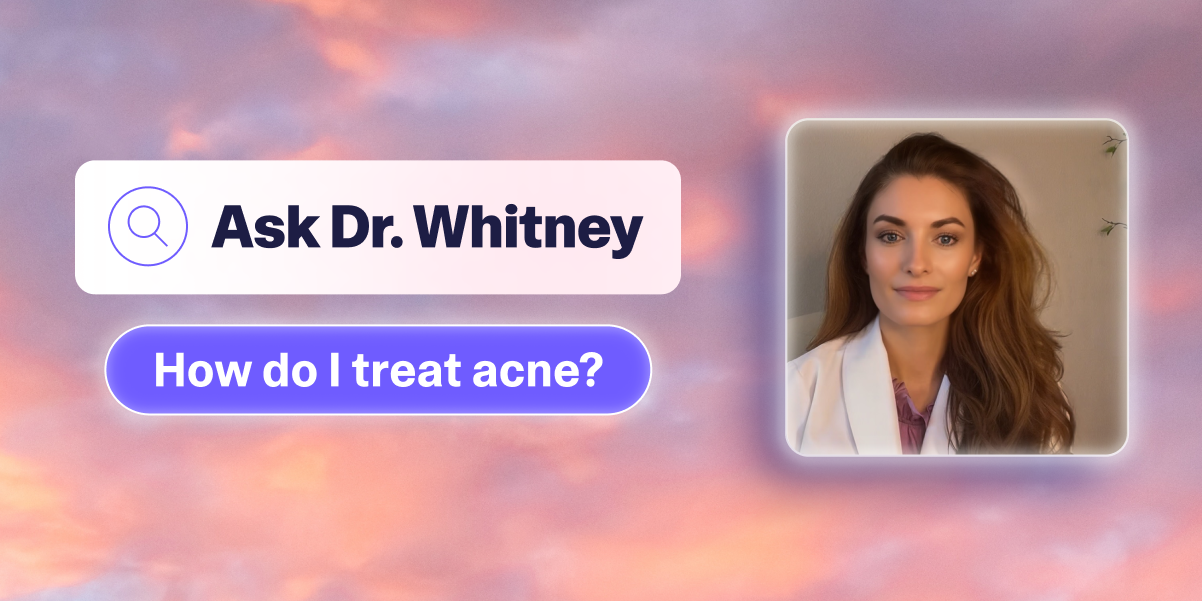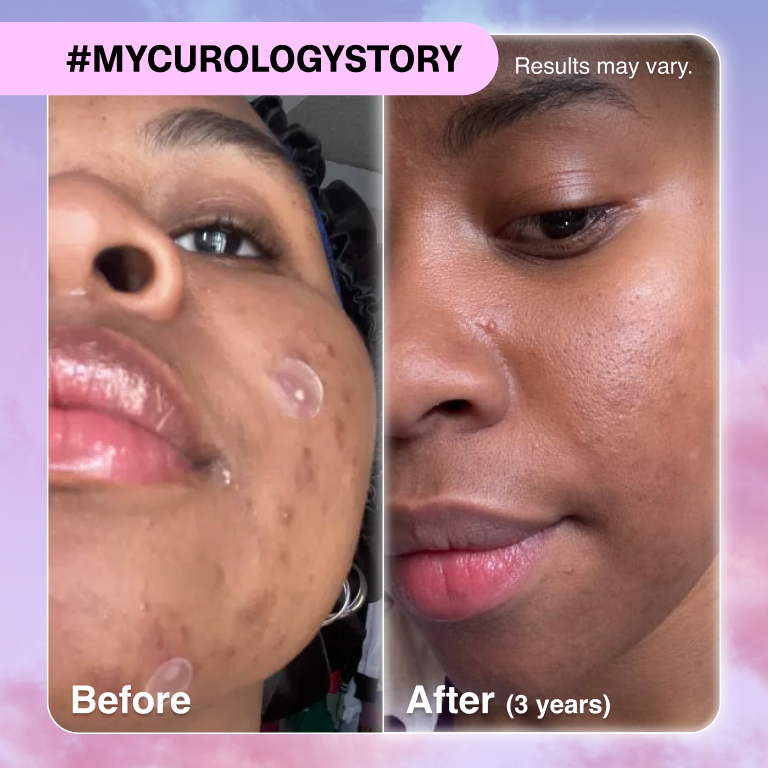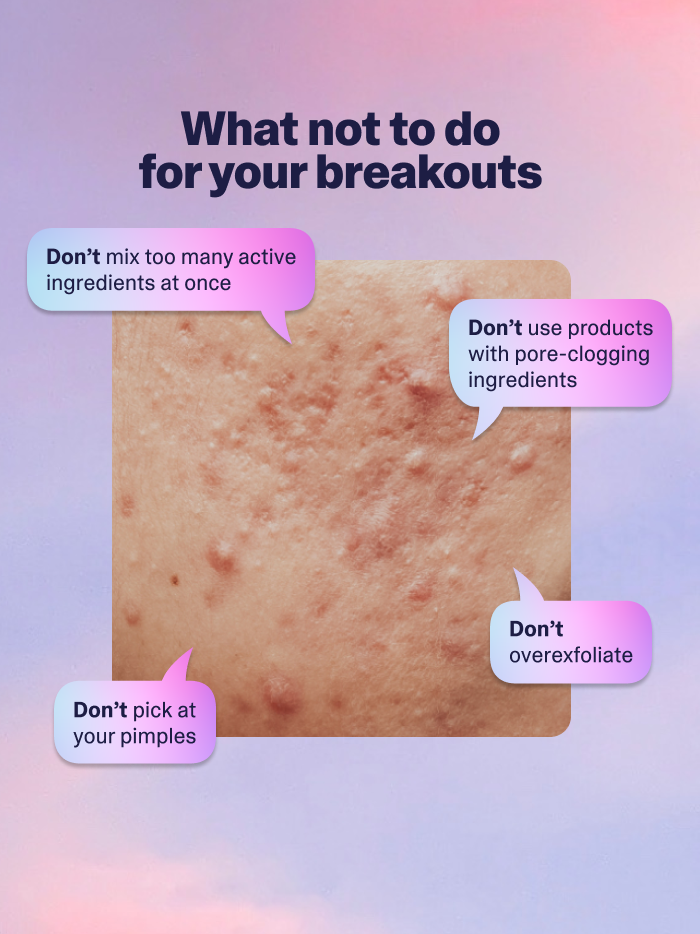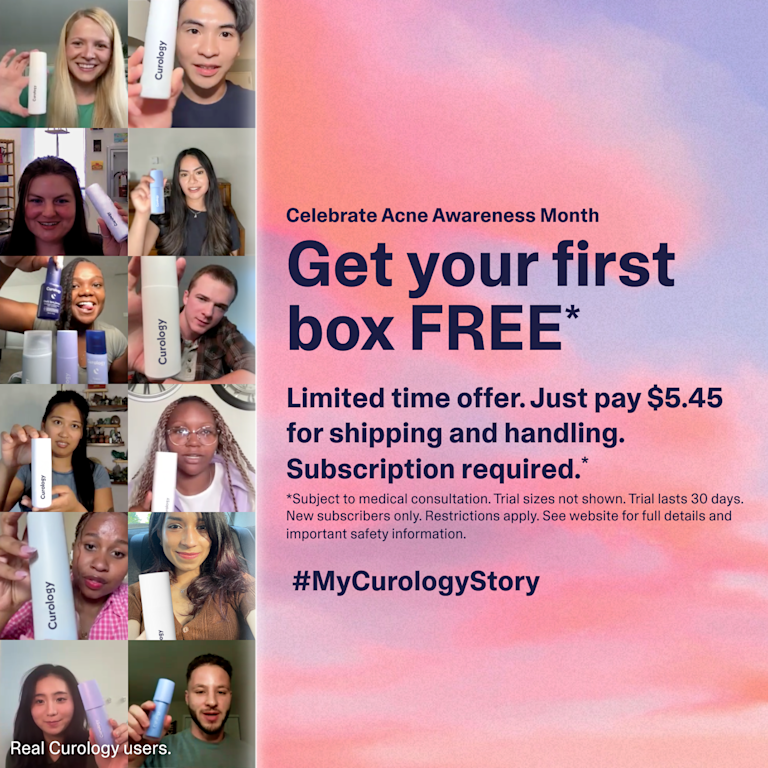How it works:
Share your skin goals and snap selfies
Your dermatology provider prescribes your formula
Apply nightly for happy, healthy skin
How it works:
How it works:
Share your skin goals and snap selfies
Your dermatology provider prescribes your formula
Apply nightly for happy, healthy skin
How it works:
Ask Dr. Whitney: How do I treat acne?
Dr. Whitney answers your most-asked questions each week for Acne Awareness Month.



Happy Acne Awareness Month! I’m Dr. Whitney Tolpinrud, MD, FAAD, a board-certified dermatologist and Medical Director at Curology.
Welcome back to our special educational series where I’m answering all of your most asked questions to help you achieve clear skin. This week we’ll cover what kinds of treatments are out there for acne and how they work, including some fast fixes for your breakouts overnight!

What are your options for treating a breakout?
When it comes to acne treatment products, I like to think in three broad categories:
Over-the-counter topical acne treatment
Prescription topical acne treatment
Prescription oral medication for acne
Topicals may be short-contact washes or leave-on creams or gels, and combining them can often lead to better results.
How do you know what acne treatment products are right for you?
With so many products on the shelves, it can feel overwhelming. My advice is to focus on active ingredients. The right ingredients do the heavy lifting, while the wrong base can clog pores. Each ingredient works a little differently, and pairing them can create a more powerful effect.
Start simple: salicylic acid unclogs pores and exfoliates, benzoyl peroxide targets acne-contributing bacteria, and adapalene, an over-the-counter retinoid, helps treat both clogged pores and inflammation.
If these aren't enough, prescription options for acne such as tretinoin, clindamycin, and azelaic acid come into play. Azelaic acid is a gentle multitasker that reduces inflammation and helps fade dark spots. For deeper cysts, hormonal acne, or persistent, more stubborn acne, we may turn to oral treatments such as doxycycline, spironolactone, or oral contraceptives. In the most persistent or scarring cases, oral isotretinoin may be the right choice.
How do you balance immediate relief with lasting results?
If you wake up with a breakout before a big event, don’t panic! Short-term fixes can help calm things fast. Hydrocolloid patches, such as our Emergency Spot Patch, can help heal sudden spots. Cool compresses, or even a tiny dab of Visine can also reduce redness. Acne spot treatments with salicylic acid, azelaic acid, or benzoyl peroxide can also target inflammation quickly, but remember, a little can go a long way! Don’t overdo it as this may lead to skin irritation.

In a clinical trial of 150 Curology patients, 90.5% of patients saw an improvement in their acne at 3 weeks.* All that said, real change takes consistency. I think of topical tretinoin like a gym membership for your skin because results build over time! The real glow-up, however, takes patience. Keep your treatment next to your toothbrush to make it part of your nightly routine so it becomes second nature.
*Results may vary. Self-reported.
How can combination acne therapy help your skin?
Here’s the secret: acne responds best to combination therapy. It’s not just about one magic product—it’s about using the right ingredients, in the right amounts, tailored to your skin.
At Curology, our licensed dermatology providers customize formulas designed to address your specific needs. Clinical research backs this up, combining ingredients often leads to faster and more complete results, with added perks like brighter skin and fewer dark spots.
Many acne-fighting ingredients are multitaskers. Tretinoin treats acne and smooths fine lines. Azelaic acid calms inflammation, helps clear acne, and fades hyperpigmentation. Acne care isn’t just about treating breakouts, it’s about supporting your skin’s overall health and helping you feel confident in your skin.
If you’re in need of expert support in figuring out what type of acne you have, you can take our skin quiz! If you decide to start Curology, our licensed dermatology providers can answer any question, any time.
All month long, we’re sharing some of the real skin stories of the 5.5 million Curology patients we’ve served. You can read more about each #MyCurologyStory here. My biggest hope is that this education will empower you to transform your skin, then we’ll be celebrating your #MyCurologyStory too!


Dr. Whitney Tolpinrud